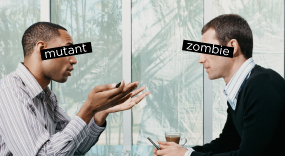First there came a rock.
Then learning. Then ore.
Then learning. Then metal.
Then learning. Then tools.
Then learning. Then machines.
Then learning. Then factories.
Then learning. Then helicopters.
What was the difference between the first generation of learners and the last? They all had the same natural resources didn't they? So, why didn't the person who learned about ore just go ahead and build a helicopter?
The same reason that the inventor himself, Leonardo da Vinci, didn't actually build it. The learning wasn't complete. He dreamt up the idea and even made plans for it. He just didn't have the knowledge for how to act on it.
Learning is like a set of Legos. One brick at a time stacked upon another. Eventually you have a remarkable creation like a life-sized giraffe or a replica of the Eiffel Tower.
The question you need to ask yourself is what learning can you complete to help to assemble the next great idea?
Then learning. Then ore.
Then learning. Then metal.
Then learning. Then tools.
Then learning. Then machines.
Then learning. Then factories.
Then learning. Then helicopters.
What was the difference between the first generation of learners and the last? They all had the same natural resources didn't they? So, why didn't the person who learned about ore just go ahead and build a helicopter?
The same reason that the inventor himself, Leonardo da Vinci, didn't actually build it. The learning wasn't complete. He dreamt up the idea and even made plans for it. He just didn't have the knowledge for how to act on it.
Learning is like a set of Legos. One brick at a time stacked upon another. Eventually you have a remarkable creation like a life-sized giraffe or a replica of the Eiffel Tower.
The question you need to ask yourself is what learning can you complete to help to assemble the next great idea?






